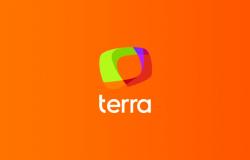Credit, Getty Images
- author, Liv McMahon
- Roll, BBC Technology Reporter
-
8 minutes ago
TikTok is increasingly close to being banned in the United States after the Senate approved a bill that would ban the platform unless its Chinese owner, ByteDance, sells the company.
The video-sharing app has millions of users around the world but faces growing questions about the security of users’ data and its links to the Beijing government.
The US House of Representatives and the US Senate approved legislation that, among other things, forces the platform’s parent company to divest.
President Joe Biden has promised to sign the ban into law.
1. Who wants to ban TikTok in the US and why?
Lawmakers from both major U.S. parties have pushed for a law that would ban TikTok unless ByteDance agrees to sell the app to a non-Chinese company.
They fear the Chinese government could force ByteDance to hand over data on TikTok’s 170 million U.S. users.
TikTok insists it would not provide foreign user data to the Chinese government.
On April 21, House lawmakers approved a $95 billion foreign aid bill with funds for Ukraine, Israel and Taiwan, which also paves the way for the forced sale of TikTok .
On April 23, the legislation passed the Senate and will now be sent to Biden to be signed into law.
This is not the first time that American authorities have attacked TikTok.
Former US President Donald Trump tried to ban the app when he was in the White House in 2020.
But Trump – now confirmed as the Republican candidate for the 2024 presidential election – criticized the new legislation, arguing that limiting TikTok would unfairly benefit Facebook.
2. When can TikTok be banned?
Even after Biden signs the bill, the ban will not take effect immediately.
In fact, it would likely be several years before Americans would no longer be able to access the app, as ByteDance has a lawsuit – likely to reach the Supreme Court – to block the forced sale.
Additionally, the legislation gives ByteDance nine months to sell TikTok to an American buyer, with an additional three-month grace period before any ban takes effect.
This means the sale deadline will likely reach 2025, after the winner of the 2024 presidential election takes office. If Trump wins, he could try to block the ban from being implemented.
3. How would a ban on TikTok work?
The most direct way for the US to ban TikTok would be to remove it from app stores, such as those operated by Apple and Google for iOS and Android devices.
Credit, Getty Images
App stores are how most people download apps on their smartphones and tablets, so the ban would prevent new users from getting TikTok.
This means that people who already have the app will no longer be able to get future updates designed to improve security or fix bugs.
The US bill prohibits applications controlled by US adversary countries from being updated and maintained in the US. The text gives the president broad powers to limit applications with links to Russia, China, Iran and North Korea.
4. What did TikTok say about the law?
TikTok has strongly criticized the legislation, calling it an affront to the right to freedom of expression in the US.
Chief Executive Shou Zi Chew warned that the project would give “more power to a handful of other social media companies” and put thousands of American jobs at risk.
Credit, Getty Images
ByteDance would have to seek approval from Chinese authorities to sell TikTok, but Beijing has vowed to oppose such a move.
5. How did US TikTok users respond?
Some US creators and users also criticized the proposed ban.
Tiffany Yu, a young disability rights advocate from Los Angeles, told the BBC at a protest outside the White House that the platform was vital to her work.
TikTok asked its 170 million US users to contact their political representatives and ask them not to support the project.
But the deluge of “confusing” calls from TikTok users to congressmen and senators may have backfired.
Several politicians say the campaign aggravated concerns they had about enforcement and strengthened their resolve to pass the legislation.
6. Is TikTok banned in other countries?
If the bill becomes law in the US, it could inspire similar measures elsewhere.
TikTok is already banned in India, which was one of the app’s biggest markets before it was banned in June 2020.
It is also blocked in Iran, Nepal, Afghanistan and Somalia.
The UK government and Parliament banned employees from using TikTok on their work devices in 2023, as did the European Commission.
The BBC also advised its staff to delete TikTok from corporate phones for security reasons.
7. How does TikTok work and how much user data does it collect?
At the heart of TikTok is its algorithm. This is a set of instructions within the application that determines what content will be presented to users, based on data about how they have interacted with content previously.
Users can access three main feeds on their app – ‘Following’, ‘Friends’ and ‘For You’.
The ‘Following’ and ‘Friends’ feeds present users with content from people they have chosen to follow and who follow them back, but the ‘For You’ feed is automatically generated by the app.
This curated feed has become the go-to destination for users looking for new content and creators eager for the millions of views TikTok videos can get if they go viral.
Critics say the app collects more data than other social media platforms to power its highly personalized system.
This can include information about users’ location, device, content they interact with, and the keystrokes they exhibit while typing.
But popular social media apps like Facebook and Instagram collect similar data from users.






